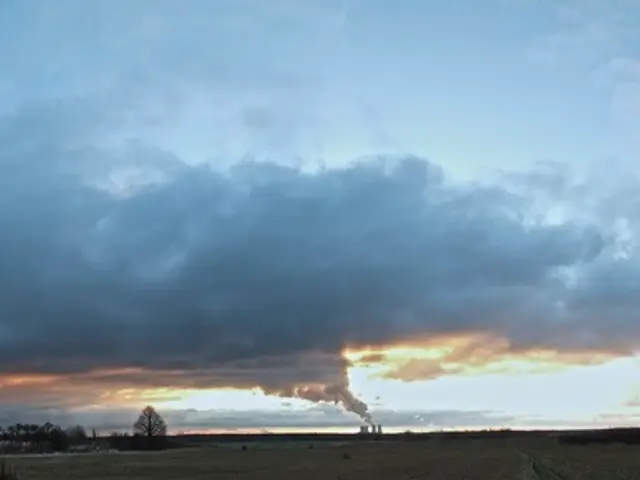Reinforcing Europe's Chemical Manufacturing Sector's Resilience
The European Chemical Industry Council (CEFIC) is spearheading a collaborative effort to strengthen regional supply networks within Europe, aiming to ensure greater security of supply, reduce dependencies, and make the industrial base more resilient to geopolitical shocks.
In a race against time, Europe's chemical industry is grappling with soaring energy costs and tightening regulations, which account for 40% of the average cost base in the upstream part of the industry. Ilham Kadri, President of CEFIC, has delivered a call to action, emphasising the urgent need for bold measures, particularly to address energy costs and regulatory burden.
Over the past two years, the rate of closures for European chemical production sites has surged to 10 times the historical average. To counter this trend, CEFIC is securing funding for research and development as part of its 10-point rescue plan for chemicals. This funding will be used to develop new technologies, make the industry more competitive, and focus on sustainable and circular supply chains.
CEFIC is also advocating for a simplified and streamlined REACh framework, a key regulatory system, to make it more predictable and to ensure that European companies are not bogged down by regulatory burdens but empowered to innovate and compete on the world stage.
In addition, CEFIC is working to enhance efforts to diversify non-EU supply sources to decrease dependencies and capture more growth by tapping into new markets. This includes calling on EU policymakers to get ongoing FTAs like Mercosur, India, and the ASEAN countries over the finishing line to open and deepen access to third-country markets.
Collaboration across sectors, including chemicals, pharmaceuticals, energy, and construction, is crucial for the industry's future success. CEFIC is engaging with stakeholders, including policymakers, industry leaders, and value chain partners, to address the challenges and opportunities facing the specialty chemical sector.
Public funding and fast permitting coupled with de-risked private investment are necessary for scaling up inventions and exploiting innovations at industrial scale. Access to EU funding requires a one-stop shop and faster, simpler procedures that also work for Small and Medium Enterprises (SMEs).
CEFIC is also positioning itself to emerge stronger by reinforcing Europe's strategic industries, particularly in securing key chemicals for defense and critical medicine production. This includes advocating for a clean industrial deal and supporting the development of new technologies at industrial scale within the region.
EU politicians and decision-makers contributing to rescue measures for the European chemical industry include German Federal Minister for Economic Affairs Robert Habeck, who advocates for increasing wind energy expansion, and regional leaders like Landrat Dr. Andreas Coenen demanding a reliable legal framework for green investors.
By fostering collaboration, securing funding, advocating for simplified regulations, and engaging with stakeholders, CEFIC is working tirelessly to ensure a stronger, more resilient European chemical industry that remains a leader in innovation.
Read also:
- United States tariffs pose a threat to India, necessitating the recruitment of adept negotiators or strategists, similar to those who had influenced Trump's decisions.
- Weekly happenings in the German Federal Parliament (Bundestag)
- Massive 8.8 earthquake hits off the coast of Russia's Kamchatka Peninsula, prompting Japan to issue a tsunami alert.
- Court petitions to reverse established decision on same-sex marriage legalization








